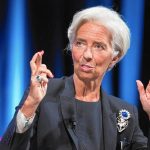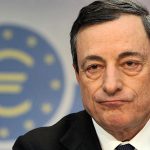Altice head says ANACOM is threat to the sector
The CEO of Altice Portugal, Alexandre Fonseca, has stated this week that the current attitude of the National Authority for Communications (ANACOM) is the main stumbling block to a telecommunication sector worth around €5Bn to Portugal’s GDP.
Addressing business leaders at the International Club of Portugal in Lisbon on Wednesday, he said, “The sector is under a growing threat and that threat is called ANACOM”.
He said at the club that the regulator is taking a populist and demagogic position over its changes to the law governing electronic platforms which was presented as a bill in parliament without hearing the telecoms sector.
Fonseca said he was not closing the door on future challenges when quizzed on the possibility of going into politics with a position in the government as a minster of telecommunications.
“It would be very short-sighted for someone aged 44 to say that he never would. At this moment in my life it is not something that concerns me and is not at the top of my list of priorities” he said.
But he stressed, “The areas of business and politics should be separated and not mingle which does not mean that the two areas should not cooperate” he added.
Alexandre Fonseca also commented on Altice Portugal’s results published last week regarding the last quarter of 2018 and said that for the “very first time in 27 quarters” the company had seen its revenues grow.
The revenues were €526 million, an amount that exceeded the forecasts from analysts and represented an 0.2% increase on the previous quarter which means that the telecoms company had stabilised its turnover revenues.
Improved new customer contract numbers as well as an improvement in the numbers of customers not switching to competitors, as well as an increase in average revenues per user (ARPU) were the reasons behind this improvement.
All told, profits before EBITDA stood at €199 million — an amount reflecting a 13.8% decrease like-for-like on 2017.
CAPEX investment over the last three months of 2018 stood at €120 million, down €7 million than on the last quarter of 2017.










